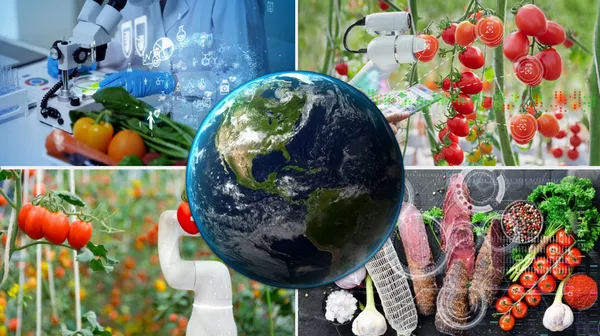Recently, at the Culinary Institute of America (CIA) during the Menus of Change Conference, pivotal recognitions underscored a shifting landscape in the world of food systems. These acknowledgments reflect a profound transformation unfolding in real time.
One significant recognition came from Food & Wine Magazine, naming Rupa Bhattacharya and Roshara Sanders as 2024 Game Changers. Both pioneering figures at CIA, Bhattacharya and Sanders are reshaping culinary education by infusing diversity into its core. Bhattacharya emphasizes, “Essentially what the Culinary Institute of America does is we lead the restaurant industry in terms of sustainability, nutrition, and public health, and big ideas, and food—all through a lens of empathy, humanity and flavor.” This approach aims to leverage food as a tool for global betterment.
The evolution in leadership within food and agriculture is stark when compared to past decades. Emerging leaders, now leading nonprofits, restaurants, and farms, bring fresh perspectives rooted in inclusivity and openness. This diversity enriches the discourse and approach to food and agriculture, a pivotal change for sustainability and equity in the sector.
Another accolade, the World Food Prize, honored Geoffrey Hawtin and Cary Fowler for their lifelong commitment to preserving crop biodiversity—a critical defense against global food insecurity. Their work spans decades and has united governments, scientists, and farmers in safeguarding over 6,000 species crucial to our food heritage.
While these laureates, like Hawtin and Fowler, are veterans in the field, their recognition underscores the imperative of diversity in all aspects of food systems—crop variety, cultural sensitivity, and innovative thinking. This diversity, they argue, is essential for a resilient and thriving global food landscape.
The Menus of Change Conference, hosted by CIA, plays a pivotal role in shaping these future leaders of the food system. Initiatives like CIA’s Green Campus Initiative exemplify efforts in sustainable agriculture and food recovery, setting a standard for holistic culinary education. Across North America, institutions from Johnson and Wales University to Chatham University are integrating sustainability into their culinary and food studies programs, fostering a new generation attuned to planetary and human health.
Beyond academia, platforms such as the James Beard Foundation’s Chef Bootcamp for Policy and Change and educational resources from the Rodale Institute empower individuals to become food system leaders. Books, films, podcasts, and articles curated by Food Tank further enlighten and inspire individuals to reimagine their relationship with food and its impact on the planet.
In closing, as we navigate the complexities of food and agriculture in a rapidly changing world, these initiatives and recognitions highlight a collective commitment to shaping a healthier, more equitable future. The integration of diverse perspectives and innovative practices will undoubtedly steer us toward a more sustainable global food system.
For further discussions on food system leadership and to share your experiences, recommendations, and insights, contact Danielle at [email protected]. Your voice is crucial in this ongoing dialogue towards transformative change.
Related Topics:
























